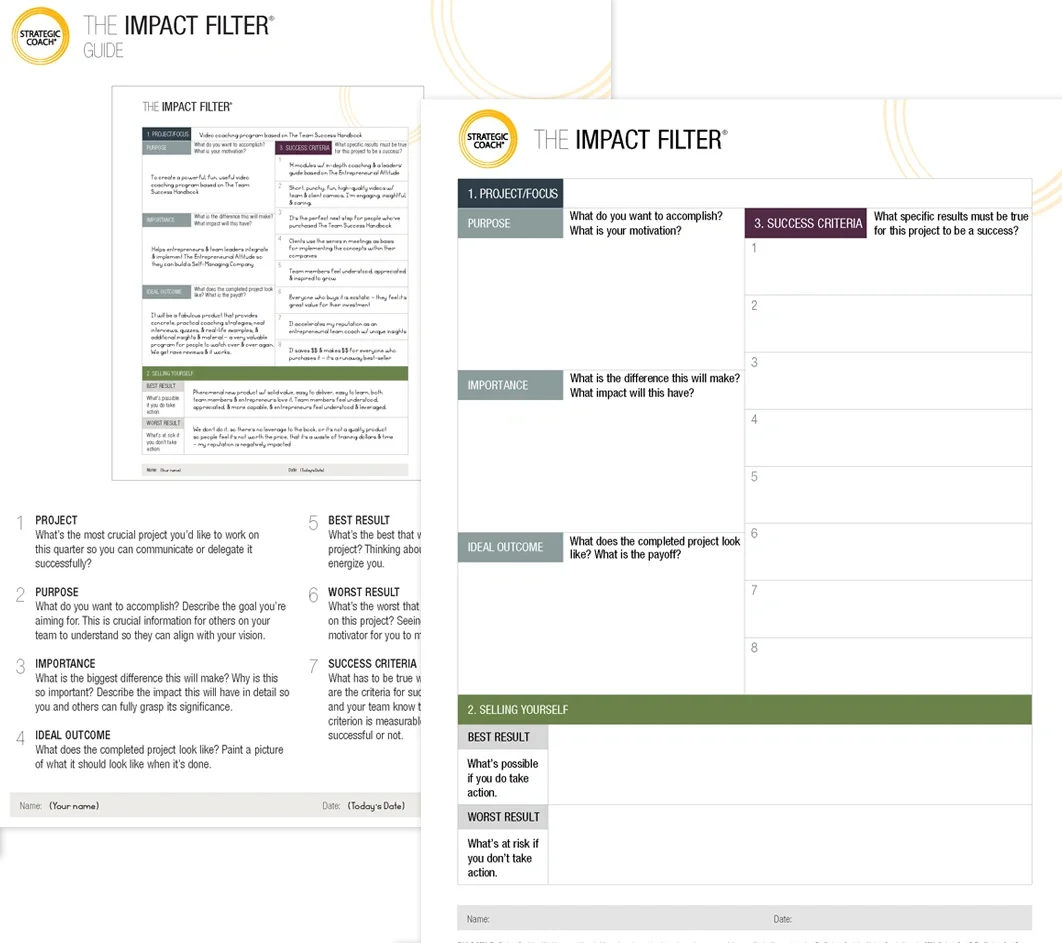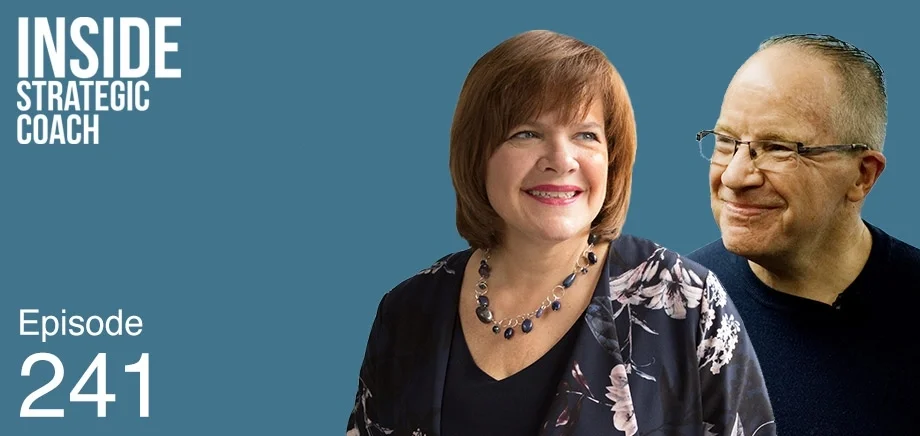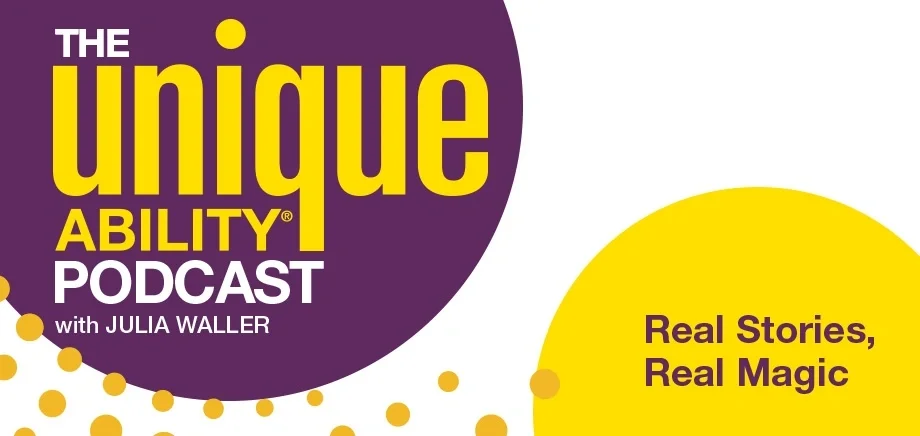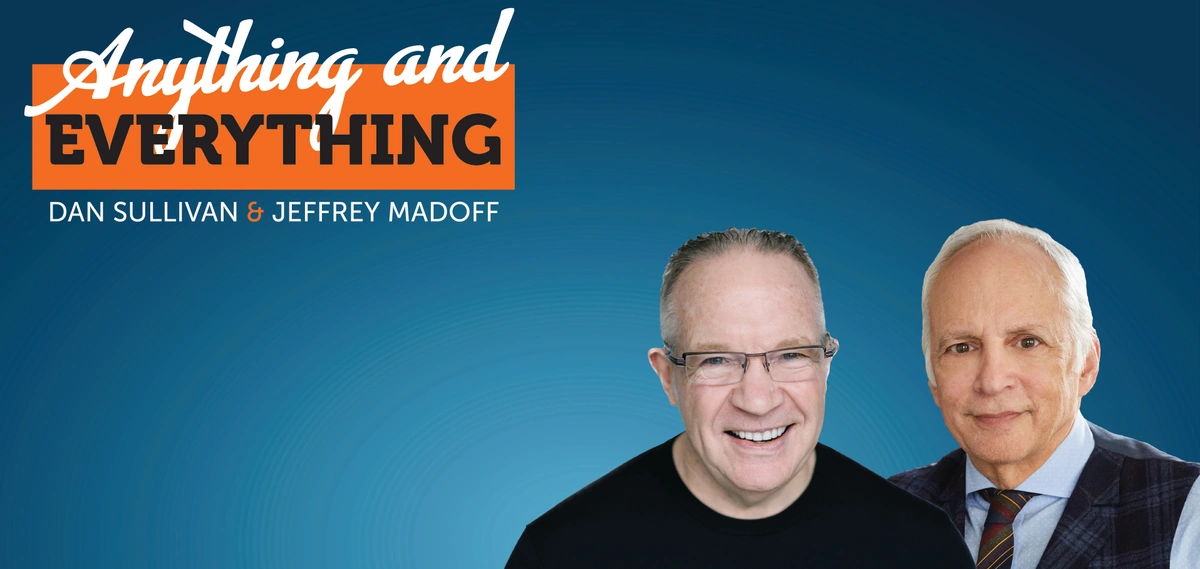Entrepreneurs Grow Stronger With Community Over Isolation
September 30, 2025
Hosted By
 Dan Sullivan
Dan Sullivan
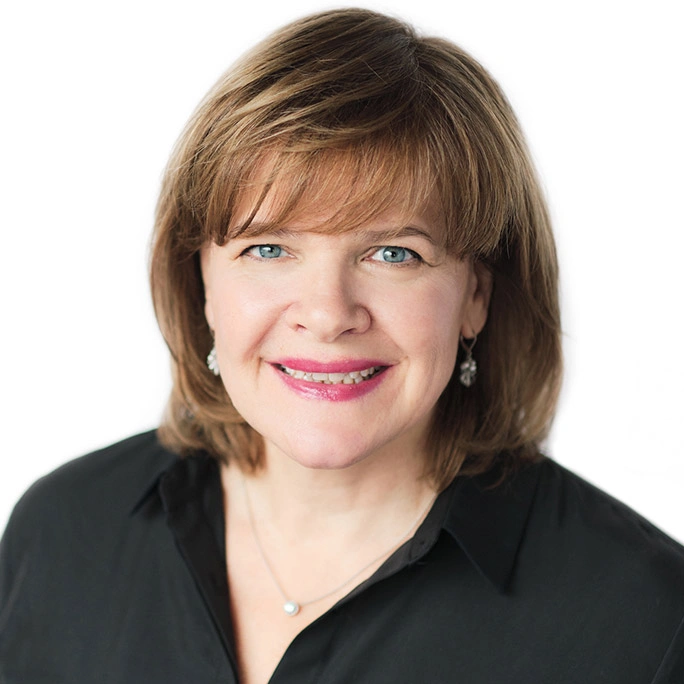 Shannon Waller
Shannon Waller
Do you feel alone navigating the entrepreneurial journey, even in a room full of peers? This episode uncovers the power of a shared language, showing how entrepreneurs elevate their growth, tackle obstacles, and celebrate wins together. Discover how Strategic Coach’s thinking tools turn isolation into collaboration, making progress possible for everyone—no matter their industry or experience.
Here’s some of what you’ll learn in this episode:
- How Strategic Coach® stands apart from other coaching companies.
- How thinking tools create a shared language for entrepreneurs.
- A simple approach for entrepreneurs to clarify their ideal role.
- The story of Dan building an entrepreneurial community in 1982.
- Why entrepreneurs tend to experience more isolation than others.
Show Notes:
Entrepreneurs often don’t have words for their experience, and Strategic Coach provides them.
A shared language empowers entrepreneurs to interpret and elevate their experiences within a supportive community.
At most entrepreneurial coaching companies, every client knows that everyone else in the room is a competitor, and it makes for a toxic learning environment.
Most business coaching programs actually make entrepreneurs feel more isolated, lonely, and anxious.
Strategic Coach builds environments where each entrepreneur is seen as a resource rather than a rival.
Strategic Coach’s 250 thinking tools create a common language and provide practical frameworks for collaboration, growth, and clarity.
Strategic Coach members are all making progress within the same framework.
Common language shortcuts, like The 4 C’s Formula®, accelerate mutual understanding and meaningful conversation.
In creating his thinking tools, Dan Sullivan intentionally avoids jargon so that communication is clear, practical, and relevant to real experience.
There are elements common to every entrepreneur’s experience, no matter what industry they’re in.
Resources:
Your Life As A Strategy Circle by Dan Sullivan
How To Harness The Power Of Negative Thinking
The 4 C’s Formula by Dan Sullivan
Who Not How by Dan Sullivan with Dr. Benjamin Hardy
The Gap And The Gain by Dan Sullivan with Dr. Benjamin Hardy
10x Is Easier Than 2x by Dan Sullivan with Dr. Benjamin Hardy
Episode Transcript
Shannon Waller: Hi, Shannon Waller and welcome to Inside Strategic Coach with Dan Sullivan. Dan, we were wrapping up a workshop the other day and you were talking about the fact that one of the things that you focus on is providing an expanding language to entrepreneurs so they don't get isolated, which really struck me as being a profound comment because people often don't have words for their experience as an entrepreneur and that's what you give them.
Dan Sullivan: Well, first of all, I'd like to talk about community, and I think one of the great benefits of Strategic Coach, and I'll just use it as I compare it with what I've seen in other coaching programs that have to do with entrepreneurism, they accept at the beginning that everybody in the room is a competitor. And that your main goal is very, very strange. You're sitting in the room and let's say there's 300 or 400 entrepreneurs in the room. The main benefit out of being in this setting, being in the Program, is that you're going to out-compete the people sitting next to you. And everybody's feeling that they're being revved up to be more competitive than the people sitting next to them. And I think it's really toxic.
Shannon Waller: 100%.
Dan Sullivan: And the other thing, there's someone in the front of the room who's doing all the talking. And I just found it so strange. Why would you take something that's already hard? Being an entrepreneur, remember, you're on your own. And remember, this is gonna be a long, lonely journey. And you've gotta keep winning against other people. You gotta keep getting ahead of other people. And it just seems to me so toxic. You're filling people with things that are just gonna make them more isolated, more lonely, more worried, more anxious, and everything.
Shannon Waller: Unhappier.
Dan Sullivan: And unhappier. And I said, why don't we create a structure where, more and more, everybody in that room that you're with is more valuable to you? And in order to do that, you have to create a language for entrepreneurs to talk to each other. And so over the last more than 40 years, because of the first thinking tool that we created for Strategic Coach is called The Strategy Circle. And here's how it works.
Let's all think that it's three years in the future and that it's today's date, three years into the future. And on that day, there's five things that have been created. You've created five things that are much bigger and much better than you have today. Put numbers to them. You know, revenue, you can put revenue. Income, you can put revenue. and you can put this, but make sure that each of the five is measurable. It's got a number. It's either an event that happened or it did not happen, or it's a number.
And then you come back and let's write down everything in the present that doesn't support that. Okay, it's an obstacle. And then let's take each of the obstacles and think it through. What will solve this obstacle? Well, first of all, probably you're gonna have to make a decision. Number two, you're going to have to communicate the decision you're making. And number three, you're going to have to take action. That involves teamwork with other people to take the obstacle and actually turn it into the three-year result. And you teach the whole room that, okay? And then everybody does it. We have a form where you can write the three-year vision.
Shannon Waller: A thinking tool.
Dan Sullivan: A thinking tool. We've got a thinking tool here. And then you have the whole room talk to each other, okay? For me, as the speaker in the front, all I've done is set up a structure where everybody in the room can use the same thinking tool. It's actually a formula, VOTA. First of all, you have to create the vision. Then you have to identify the obstacles. Then you have to transform the obstacles into action. So Vision, Obstacles, Transformation, Action. Now you've supplied language for every entrepreneur in that room to communicate with each other. Oh, what are your obstacles? I've got this obstacle. Have you got that obstacle? Can you transform that? And all of a sudden you've created a community, okay?
So that was in 1982 I did this. And it was such a successful tool that my personal income grew 10 times in about a seven-year period. And it just became a massive hit out in the entrepreneurial marketplace, so much so that we could create workshops where that was the main tool. And then I noticed certain entrepreneurial situations coming up. One of them was, what should I be doing as an entrepreneur? What is my role as an entrepreneur? And we started to zero in on, well, you have a Unique Ability. Okay, and how do we figure that out?
So we have them do Activity Inventory. Well, what are you incompetent at? What are you doing, let's say, every 90 days? What are activities that you do, you find them very frustrating and they're incompetent, but you're the person who has to do them? Okay, write them down. Then where are you merely competent? You can pull it off, but it just requires a lot of energy and you never get any enjoyment out of it. Okay, they write that down. Then you say …
Shannon Waller: And that's competent.
Dan Sullivan: That's competent. So we got incompetent, we got competent. And probably we're past the two-third mark of all the activities you're doing. So you're spending two-thirds of your time every quarter doing what you're incompetent at and what you're merely competent at. And there's no energy, there's no reward, there's no satisfaction. You dread the future out of this. And then you say, what are you excellent at, but it doesn't really give you a big reward. You're just really good at this, but there's nothing special about it.
And you say, now, what activities are left over? We've taken care of incompetent, that's handled. Competent is handled. Excellent is handled. And there's two or three. And I say, now the combination of those two or three activities right now on this day is your Unique Ability. So what if all your time was freed up over a quarter in the future?
Shannon Waller: Mm-hmm. A quarter, not necessarily the next quarter.
Dan Sullivan: Probably won't be the next quarter because it's going to be some work there. But let's say over the next year, next two years, you find other people to do those activities so that, let's say 12 months, you're now spending 80% of your time just doing the two or three activities. Bang! All of a sudden you got another language, you got Unique Ability, you got Unique Ability Teamwork and everything else. So over the last, let's say 36 years since we have the Program, we've created 250 thinking tools that the entrepreneurs have in common with each other that they can instantly communicate with each other what they're up to.
But they're all making progress within the same framework, an agreed upon framework. And they're using the language to do it. You've created an entirely new kind of community on the planet of entrepreneurs who are part of a community, and they have special language for talking about their experiences. Okay, so that's really what I mean about creating language that expands a community.
Shannon Waller: To your point, Dan, it takes it completely out of the realm of competition. And I'm thinking one of our other exercises that you created called Largest Cheque. And we could be in vastly different industries.
Dan Sullivan: We got the patent for it yesterday.
Shannon Waller: Yay, way to go. I love that. That's original. But Largest Cheque. So I could be in a business where my largest check is $5 million. And I could be sitting beside someone whose largest check is $5,000 or $10,000. But if someone says, hey, I just got my largest check, I'm giving them a high five, right? It doesn't matter in any other room. That person would feel small. They would not feel accomplished talking to someone whose largest check was so much bigger. But in this structure, in this framework, it's a win.
And so it really does just completely take out any of that aspect. And each person can be successful on their own track, but to have a way to talk about it with someone in a vastly different universe than they're in, but all entrepreneurial.
Dan Sullivan: Yeah. And the interesting thing is, I mean, just in terms of what you and I have talked, so now I take Strategy Circle, I take Unique Ability, I take Unique Ability Teamwork, and I take Largest Cheque, and I put them together in a concept. And there's just an infinite number of great, valuable things to talk about where everybody's got this language, and there's no competition.
Shannon Waller: It's so fascinating, Dan, because you've identified the elements that are common to everyone, having a goal, obstacles, strategies, action, right? You've taken something and you've found the common elements, which means we can talk about it. So where people get mired in just the stuff, you're elevating it by naming it, which is really what language is, so that we can have a productive, creative, rewarding, and contributing conversation. We have breakout groups all throughout the day, and so much of the great coaching is available from the other …
Dan Sullivan: From the entrepreneurs coaching each other.
Shannon Waller: Exactly, in the community, because they have that common language. Cool. So why is this so important? You've described being in other rooms. There's lots of competition, which means no one's elevated. Everyone's trying to just not be stepped on. What else do you see in terms of why it's important? Because entrepreneurship is so easy for them to get isolated, is what's coming to mind.
Dan Sullivan: I think being an individual is an alone experience. I think that as an individual, you're in a universe of your own thoughts, your own experiences. And entrepreneurs are even more alone because on a daily basis, maybe in their personal life, they're surrounded by people who are not entrepreneurs. And there's no language that they have to actually describe what it's like to be an entrepreneur. So consequently, there's a double aloneness for being an entrepreneur.
And then if the way entrepreneur is presented to you in conferences, in workshops, is that the people that you are there with, each of them is a potential competitor. And you have no language to actually jump over that barrier. You have no way of talking to them. But the other thing is that anyone who's addressing that audience is going to rely on fear to motivate you. If you're not at it all the time, the world's going to pass you by. You're going to be left out. If you're not adjusting to this outside change in the world, you're going to be left behind. Not only that, if you look back and you're not embarrassed who you were a year ago, you're not growing.
But they have no choice except to speak in that language because they're not talking to a community that has a common language. And the speaker isn't a lone person because they're an entrepreneur in the sense that they're a speaker and they're getting paid for speaking and they're scared. And what it does is it just freezes anything. You've got massive possibilities for creativity and collaboration sitting in that room, but you have no language to make that happen.
So my whole point is, why don't we just take every single aspect of being an entrepreneur and create a special thinking tool for it that has a name so that one is, that they're changing internally. Everybody's changing internally and they're becoming more and more comfortable and their experience means more and more to them, but they have a language to communicate what's happening to them.
Shannon Waller: It's really interesting that as you're talking, the entrepreneurial experience can be very alone, it's very isolating, can be very competitive, so it's a double aloneness as you said. But the thinking tools also help me label and name my own experience. And until I actually can think about it, the word process has been coming up a lot, it's not my favorite. But it helps me think through and understand and digest … I like that one better. Digest my experience so that I can then approach a situation more strategically next time. My level of capability has gone up per last conversation. And that's huge.
So I think there's a benefit, obviously, of being in community. But even just with myself, it's incredibly important to use the thinking tools. I think better and faster in the workshop room. Trust me, I've tried it. Even just being 100 feet away, I think better thoughts in the workshop room. But it really helps me interpret my own experience, which, there's an elevation to that, that otherwise you have a lot of just circumstances and experiences that have happened that don't have a ton of meaning, because you don't have a way of thinking it through. Does that resonate with you?
Dan Sullivan: Yeah, that's exactly what it is. We can use English as an example of language. English is the most powerful language on the planet, okay, because it's an easy language to use, and there's no authority, actually, in charge of the language. The interesting thing about we're creating Strategic Coach language, but it's tested and tested and tested, so I've got other coaches who coach the thinking tools. It's a growing number of coaches. We have a growing number of entrepreneurs who are in the Program. But after a while, it's just the language you speak.
My sense is that even though we share the names of the thinking tools, I still believe that people use the tools in different ways. But there's a sense that you really know what the person is talking about. This is a 4 C’s moment. You know, it's, I had to be committed, I had to go through a period of courage. Then the capability happened and I got a big whack of confidence out of it. Everybody in the room understands. Well, there are entrepreneurs who've gone through that dozens, perhaps hundreds of times in their entrepreneurial life, but they've never had a conversation about going through that process with anyone else.
Shannon Waller: So as you were talking, Dan, it's like the word comes up for me a lot. It's an incredible shortcut. Like you can say that was a 4 C's moment for you. And I know exactly because I've had my own 4 C's. So I could connect to that instantly. So it's this incredible shortcut. And we see this with people who, you know, walking down the aisle on the plane and they see someone with their materials. Sitting there, I'm like, oh, you're in Coach. And they can have this connection and conversation that's very aligned incredibly quickly.
But the other thing I noticed is it doesn't devolve into jargon. It doesn't become code, there's no initials, we're not the alphabet agency. You know, those kind of things. So it's really useful, practical language as opposed to something that's meant to obscure or confuse people, at least in my experience. And I'm fairly tuned to that. It's not jargony, because I think that's important for you too, that it never turns into jargon.
Dan Sullivan: Well, it's just about a particular experience. It's not an abstraction. The moment you hear the words, you immediately associate the words with a very real experience. That's what keeps language alive, is that the moment you say the word, everybody says, oh, I know exactly what you're talking about. They know psychologically, they know emotionally, they know intellectually, they know practically what that term means.
Shannon Waller: Yes. Well, which is great. And again, it's all based on experience. I love that you said it's not an abstraction that takes it out of that weird realm. So Dan, if I'm going to take advantage of this great language, what's a thinking tool that you would recommend? And we're talking to people who are familiar with Coach and those who aren't. What's one of your favorite thinking tools to get people really appreciating this language aspect?
Dan Sullivan: Yeah, well, a lot of our thinking tools become books, okay? And we have three that are bestsellers. Who Not How is a thinking tool. Gap And The Gain is a thinking tool. 10x Is Easier Than 2x is a thinking tool. So I would just read the books, listen to the audios. And if you're an entrepreneur, give some thought about joining the Strategic Coach community. That's what I would do. If you want to learn the language, you've got to be in the community where the language is spoken.
Shannon Waller: Well said, Dan.
Related Content
The Impact Filter®
Dan Sullivan’s #1 Thinking Tool
Are you tired of feeling overwhelmed by your goals? The Impact Filter is a powerful planning tool that can help you find clarity and focus. It’s a thinking process that filters out everything except the impact you want to have, and it’s the same tool that Dan Sullivan uses in every meeting.
